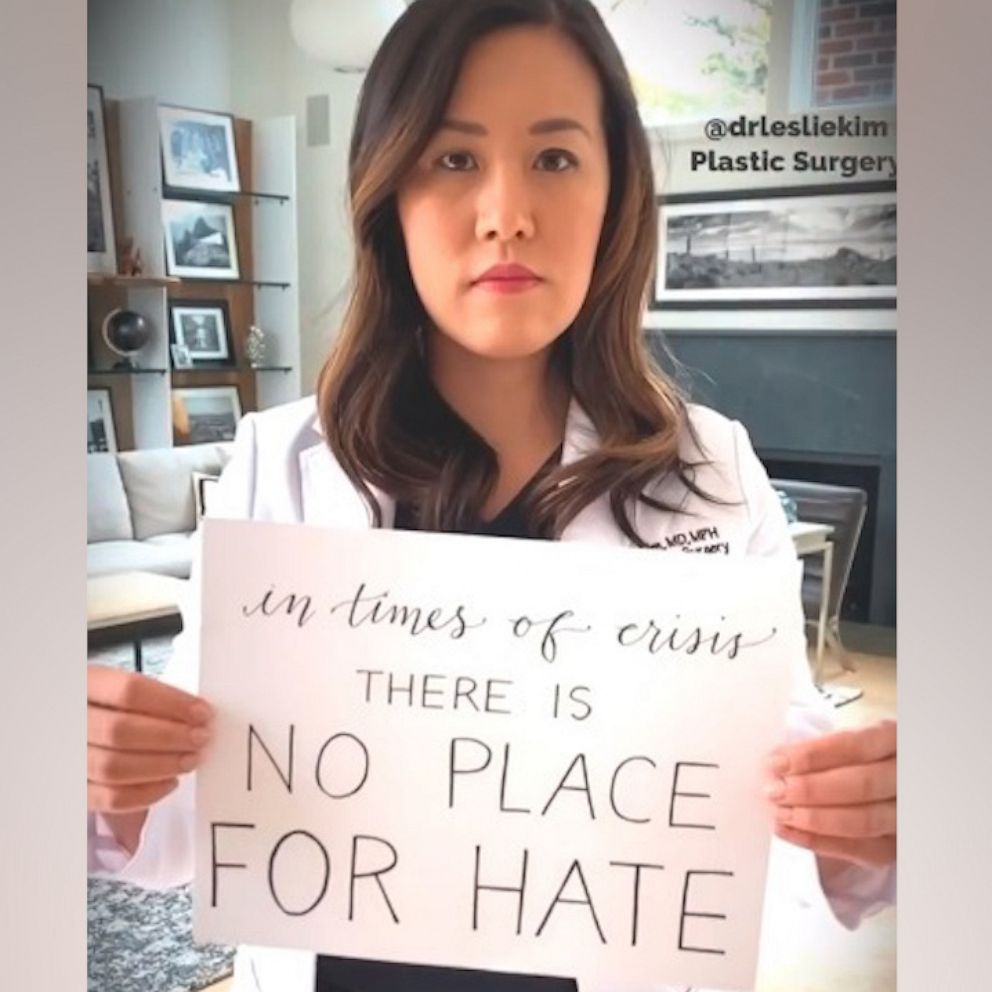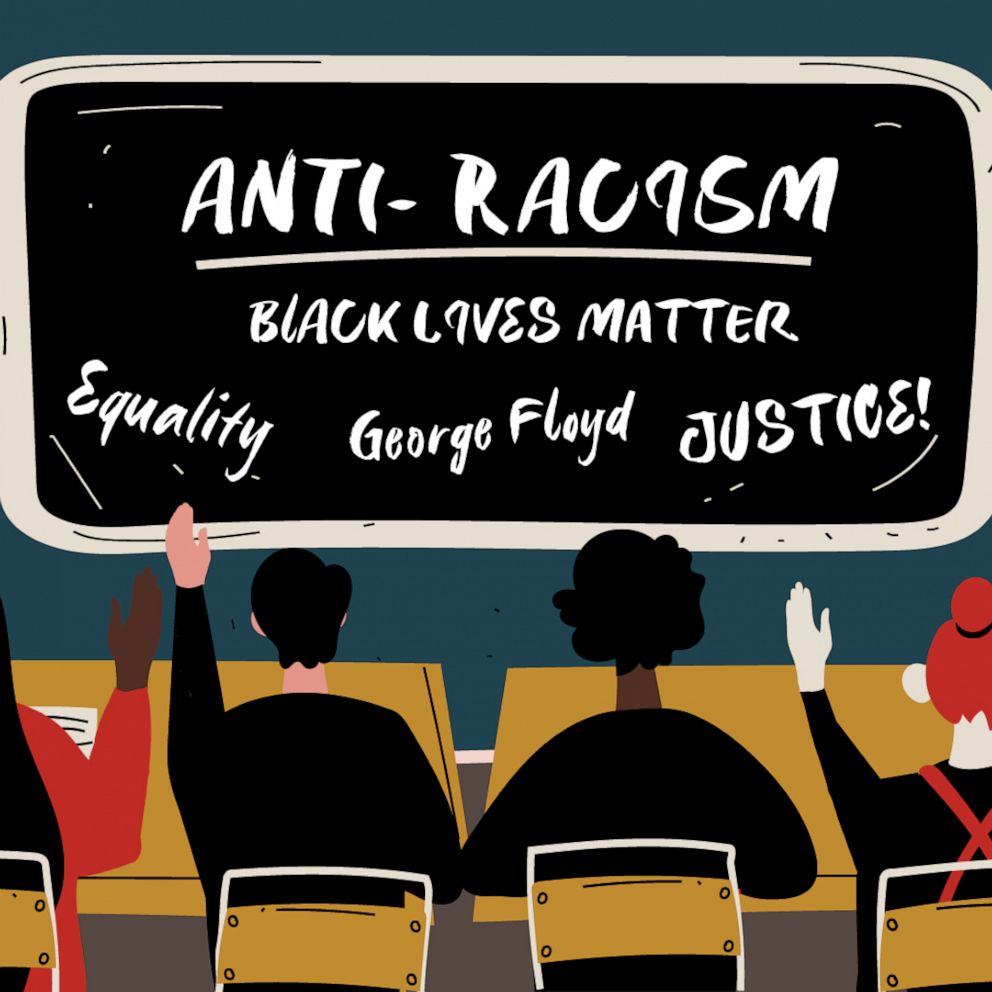Mom's lesson for kids on anti-Asian violence goes viral on TikTok
Dr. Jennifer Louie, a clinical psychologist, offers tips on how to talk to kids.
A Washington mother's viral lesson on the #StopAsianHate movement has more than 1 million views and counting.
Jane Park is a Seattle resident and mom to Bennett, 7 and Ruby, 5. Park is a second generation Korean American. Her husband, Benjamin Kang, is also Korean American.
Park recorded a video on TikTok showing how she talked to her kids about the March 16 shooting in the Atlanta area, where eight people were killed.
In the clip, Park shows her children the words, "Stop," "Asian" and "Hate." She then asks her kids about their feelings and reminded them how they can now raise awareness and put an end to hate.
"I realize the reason why I'm hesitant having these explicit conversations is I feel uncomfortable, but our kids are watching us and taking cues from us," Park told "Good Morning America."
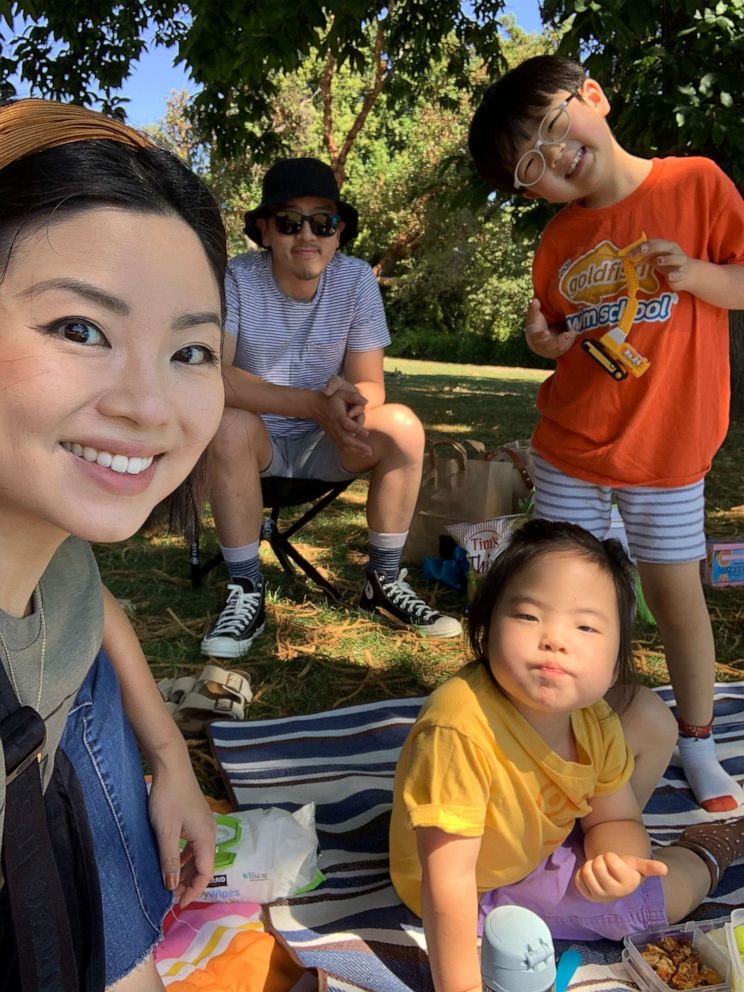
"By no fault of my parents, I grew up internalizing what it means to be Asian in America," she added. "So, I feel it's incumbent upon me to start conversations young so when they have to encounter this, God forbid overt forms of racism or aggression ... or see to anyone else encountering it, they can say, 'I remember talking about this with my mom and dad and I can speak up.'"
Park said she joined TikTok last year and began posting videos of Bennett working on his reading skills.
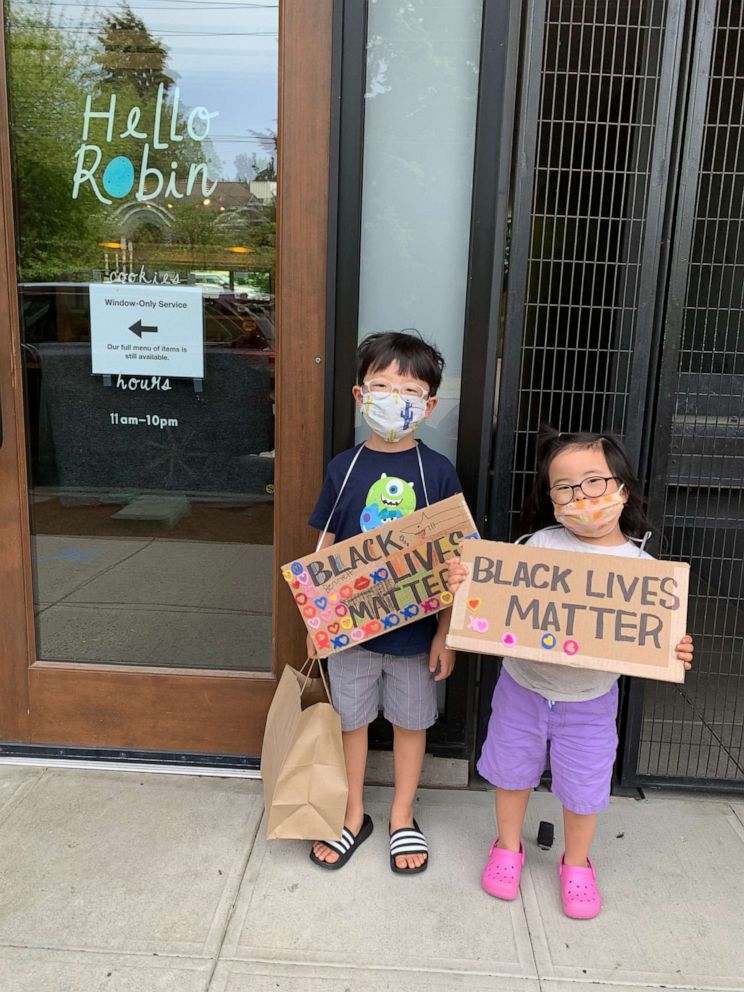
As she began having discussions with her preschooler and first grader about the 2020 election, COVID-19 and the Black Lives Matter movement, Park decided to stick with the sight words as a method for talking about these topics.
Park said she's now discussing the #StopAsianHate movement and hopes to encourage other parents to do the same.
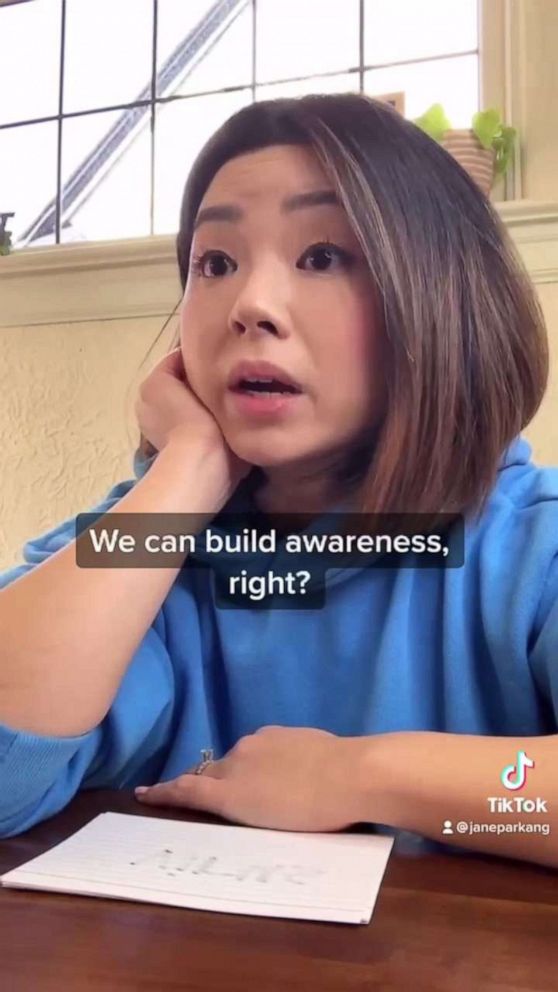
"I want them to recognize that it's not always going to be in their face," Park said of her children. "These things start with jokes or comments. [I want them] to know how to process that or call it out. I really feel like that's going to help them build a framework on how to deal with it or address it when they get older."
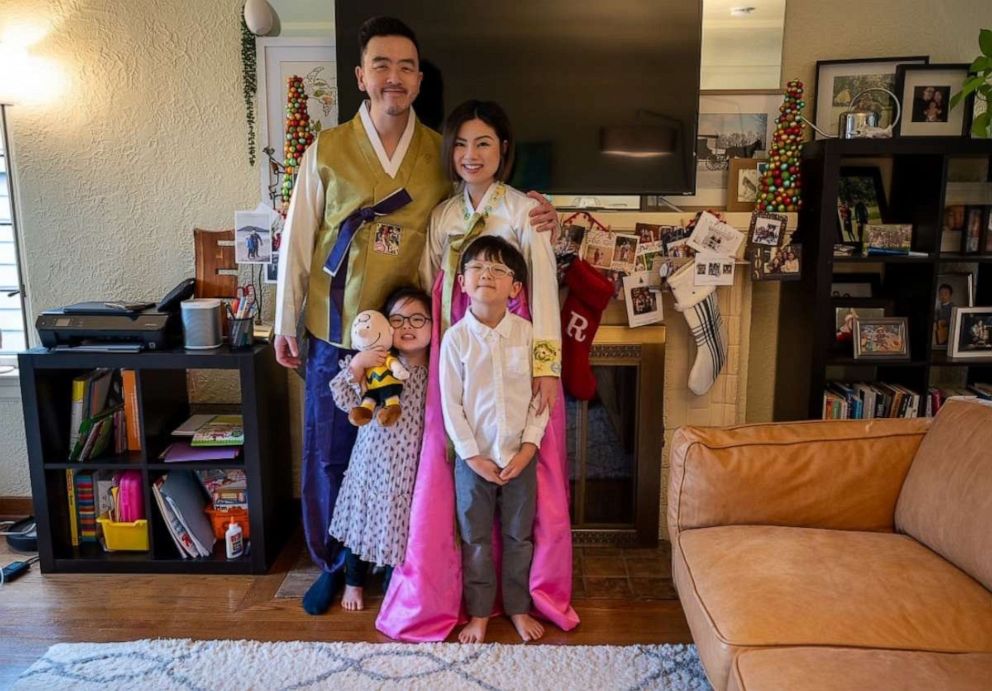
How to talk to kids about racism and violence
Jennifer Louie, Ph.D., is a clinical psychologist in the Anxiety Disorders Center at the Child Mind Institute. Louie, a Chinese American, said Park's approach is a positive one.
"It's OK to be uncomfortable, and for you to not know how to do it because our parents didn't really know how to do it," Louie told "GMA." "That is a cultural thing. It's not just because we Asian Americans as a culture wanted to assimilate and that was the way many families thought. It's also a general tendency to avoid negative emotions and difficulty expressing emotions."
"It may take some practice tolerating that difficulty," she added.
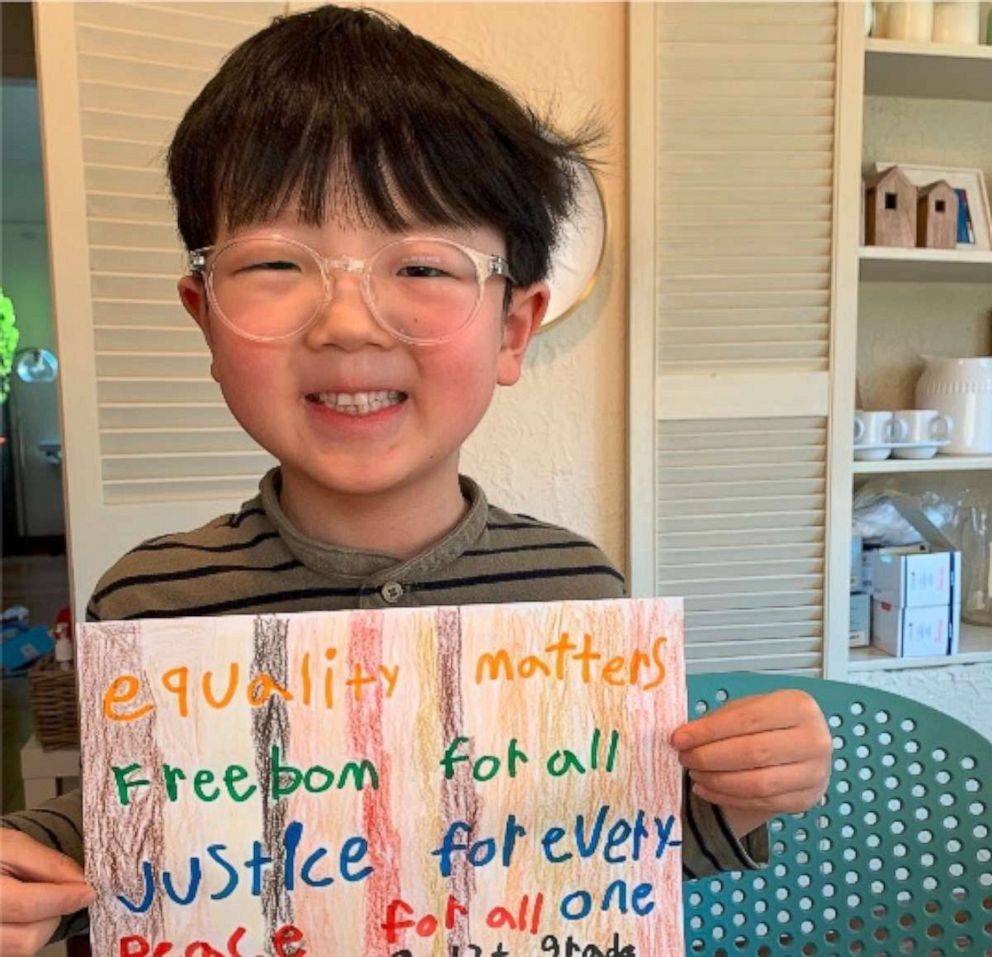
Here are tips for parents, according to Louie, on how to approach difficult conversations like racism and oppression, with kids.
Know what your child can handle and keep conversations open
Kids aren't going to be able to handle all of it at once, or remember things. Louie suggests gradually introducing new information.
Validate their feelings
Louie said keep the conversation age-appropriate. Try not to scare younger children with too many scary details, because you still want them to feel safe.
Louie said that Park asking her kids how they felt about the #StopAsianHate movement in her TikTok video is a good example.
"And she didn't just leave it there. She said, 'Well, what can we do about it? We can raise awareness,'" Louie said. "[She said], 'We can make other people know this is happening.' That makes kids feel empowered."
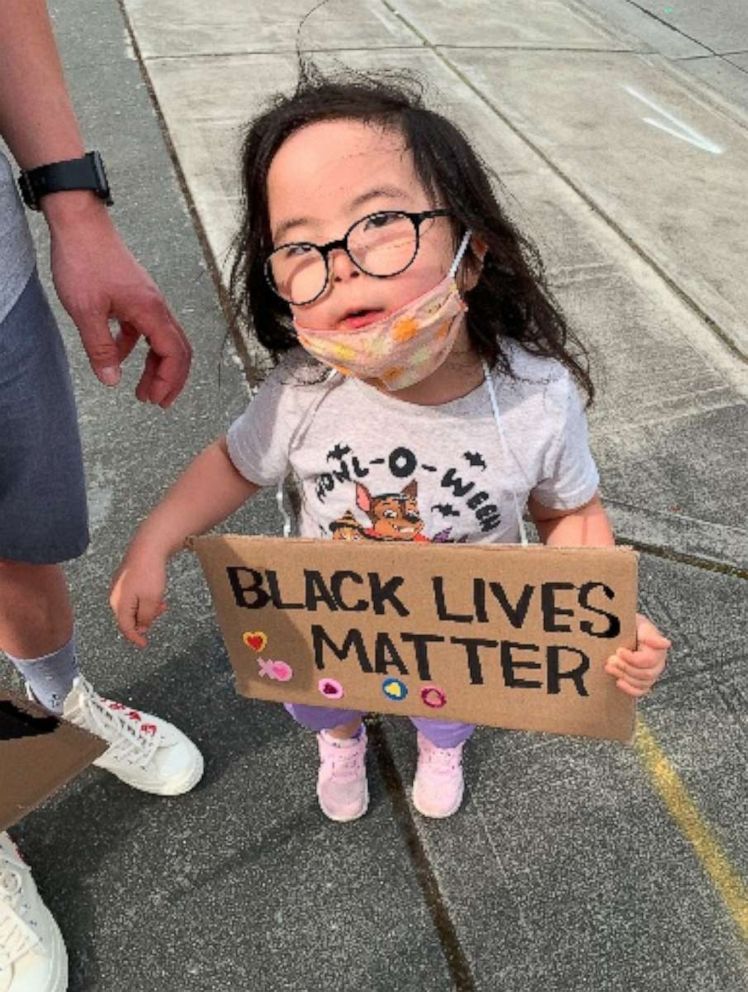
Meet them where they are
Try to be clear, direct and factual. Encourage questions and it's OK if you don't know the answer. You can always come back to it and use it as an opportunity to research and learn together.
Try to stay calm
Louie said it's OK to show you're sad and how to handle those difficult emotions. Parents should look to adults for support first, so it's easier to stay strong when talking with children later on.
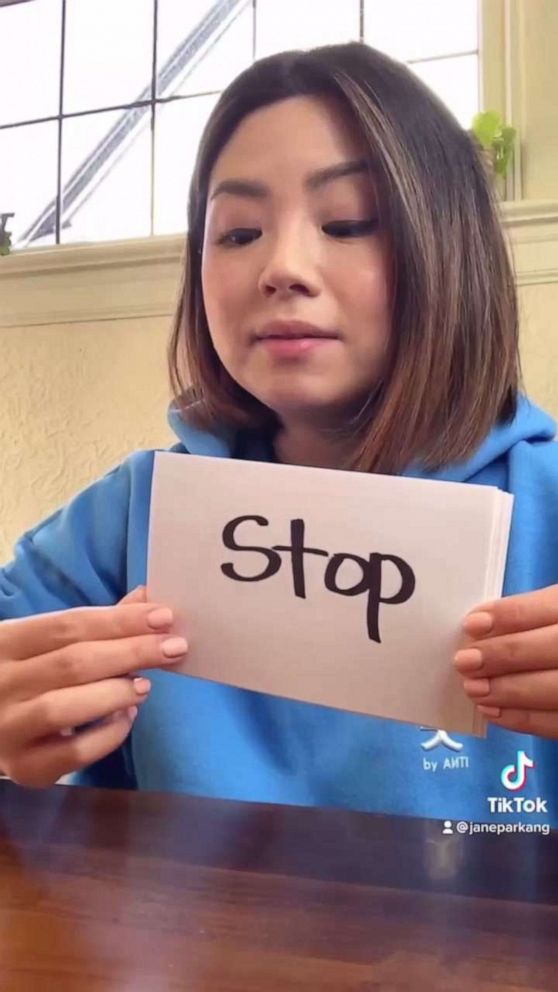
Don't avoid talking about it
Parents can commit to educating themselves and building conversations about racism into kids' lives early on. In this case, it doesn't have to stop with Asian American families.
"I think with the Black Lives Matter movement there was this huge push, especially for white parents, to be having these conversations," Louie said. "White parents can do a lot. It's not just up to minority parents to do anything about it."
Visit the Child Mind Institute for more tips and resources on how to talk to kids about racism and violence.
